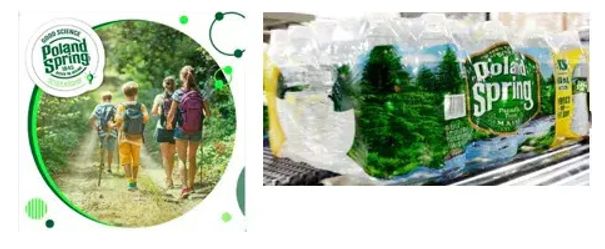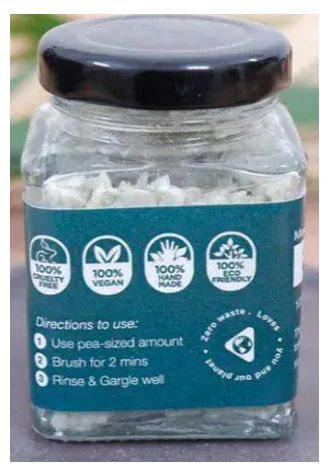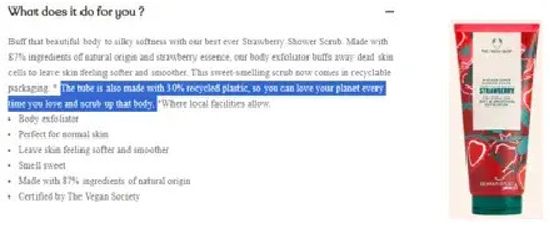- within Media, Telecoms, IT and Entertainment topic(s)
- in European Union
- with Inhouse Counsel
- in European Union
- with readers working within the Law Firm industries
Introduction
Green is undeniably the new black, and 'going green' is the mantra that drives today's consumer market. We are witnessing a significant societal shift where sustainability and eco-branding have become the new normal, profoundly influencing the environmental behaviour of both producers and consumers. While businesses embracing sustainable choices and promoting positive environmental trends can undoubtedly encourage society to make conscious decisions, this burgeoning green movement also becomes the harbinger of the most critical issue of greenwashing.
What is greenwashing?
According to the Natural Resources Defense Council (NRDC) the term"Greenwashing"was coined in 1986 in an essay by environmentalist and then-student Jay Westerveld.1Greenwashing is a term"that plays on the word 'whitewashing' and refers to the marketing tactic where companies falsely claim or exaggerate the environmental benefits of their products or services, often using vague or unsubstantiated terms such as "natural," "eco-friendly," or "green." Therefore, by creating an illusion of environmental responsibility, many unscrupulous companies exploit consumers' growing environmental sensitivity."2
Why do companies greenwash?
Consumer Demand
Consumers are the driving forces that make a brand or product successful, with the ongoing issue of climate and environmental change consumers are trying to do their bit for the environment by switching from mainstream products to sustainable and eco-friendly products. This growing demand for green and sustainable alternatives has sent clear messages to brands and companies to bring eco-friendly products to the market shelves. According to a Simon Kucher Global report on Sustainability 2024: Navigating consumer behaviour reveals that 71% of consumers think environmental sustainability is important, the report furthermore the 2024 report reveals that consumers are seen to prioritize sustainable products despite the growing affordability challenges that come with the eco alternatives3
Therefore to cater to this growing demand companies and brands to become the consumer favourite are now producing products that are eco-friendly and sustainable, however, there have been several instances where environment activists and regulatory watchdogs have called out brands for misleading the public into buying their products by making false environmental claims and greenwashing.
Going Green means Profit
According to a survey conducted by BusinessDasher in 2024 globalonline searches for sustainable goods have increased by 71% in five years and 63% say sustainabilityboosts brand revenue.4
Consumers on average are willing to spend 9.7% more on sustainable and eco-friendly products, and 46% of consumers indulge in purchasing green-labelled products as it provides them with a sense of making eco-friendly choices.5Therefore, to charge a premium on their sustainable products brands and companies try to promote their products as green and sustainable by adding the words "green", "eco-friendly", "natural" etc.,6
Constant Pressure to Compete
It is suggested that about 92% of consumers are more likely to trust an environmentally conscious brand7, with several brands ready to cater to the needs of the consumers, brands, and companies are always left on edge to compete and try to grab the crown of being consumer favourite.
This competitive environment often pushes brands and companies to come up with false exaggerated claims about their products being in line with environmental and sustainability goals preached by their consumers.8
Different ways in which companies greenwash
False and Vague claims
Companies make false and vague claims by adding buzzwords like "environment-friendly", "less emission", "green", "natural" etc., on their products to convince the public that their product causes less harm to the environment.9The European airline company Ryan Air in 2019 was called out by the Advertising Standards Authority (ASA) for making false and vague environmental claims in their Advertisement. The advertisement read as"Europe's Lowest Fares, Lowest Emissions Airline"

The ASA banned the advertisement and upheld its decision by stating"that consumers would understand that air travel was commonly associated with high levels of CO2 emissions and that choosing to fly would increase their carbon footprint regardless of the airline they flew with. In that context we considered they would interpret the explicitly comparative claim "Europe's ... Lowest Emissions Airline" in ad (a) and the claim "Europe's ... low CO2 emissions airline" in ads (b) and (c) to mean that by choosing to travel with Ryanair, their journey would be contributing lower CO2 emissions than if they had chosen to travel with any other European airline."10
Nature-based buzzwords/Images
Companies, to showcase themselves as eco-conscious, are seen to use images of "trees", "animals", "mountains", "leaves" etc., along with buzzwords like "100% natural", "clean" etc., on their packaging to create a perception that their products are indeed eco-friendly and cause less harm to the environment. In the case ofEarth Island Institute v. Bluetriton Brands(formerly known as Nestle Waters, North America)11Earth Island Institute (Plaintiff) made a complaint against Bluetriton Brands which owns Poland Spring, Pure Life, Splash, Ozarka, and Arrowhead, among many other brands (Defendant) in the Superior Court of the District of Columbia Civil Division for marketing itself as a sustainable and environmentally friendly company despite of its huge contribution to plastic pollution. The Plaintiff in the case alleges that the Defendant's marketing is false and deceptive as it portrays itself as sustainable and committed to reducing plastic pollution. The Plaintiff further claims that the Defendant's appeal to the eco-conscious consumer by cultivating an environmentally friendly and sustainable image by claiming to be moreover, the Defendant yet with its sleek, green — and blue — PR materials markets itself as a solution to the problems of plastic waste and water and based on this the Plaintiff decided to bring a lawsuit against the Defendant for the harm caused to the public due its deceptive trade practices and violation of the Columbia Consumer Protection Procedures Act ("CPA") D.C. Code § 28-3901, ef seq.

Hidden Facts
Companies and brands sometimes try to disguise the serious negative effects of products by drawing the consumer's attention to their product's one beneficial environmental feature. For instance, Dove's parent company, Unilever, which claims to want a "waste-free" world, was called out by environmental activists for the damage caused by its plastic shampoo sachets to river bodies, as only 0.2% of its packaging is reusable.12
Indian Companies Called Out for Greenwashing
Brown Living Studio
Brown living studio was called out by ASCI for misleading the public by making exaggerated "eco-friendly" claims about their Peppermint toothpaste without any supporting claims or evidence such as robust data and/or well recognized and credible accreditations to prove their claims. Moreover, there was no data provided by the company to prove that their product (including the packaging) was environmentally sustaining for the entire life of the product in addition to this their claims did not specify whether it refers to the product, its packaging or just a portion of the product.
Quest Retail Private Limited

The Consumer Complaints Council of ASCI after reviewing the declaration provided by the head of regulatory affairs of The Body Shop, was of the opinion that the declaration shows the calculated evidence used to support the claim of 30% recycled type. This claim was not supported by any independent third party data. Moreover the claim "The tube is also made with 30% recycled plastic so you can love your planet every time you love and scrub up that body" was inadequately substantiated. The above said claims made by the company was considered misleading for consumers.

Regulatory Landscape for Greenwashing
ASCI guidelines on Greenwashing<13
The Advertising Standards Council of India (ASCI) has issued guidelines to combat greenwashing.
- Absolute claims such as 'environment friendly', 'eco-friendly', 'sustainable', and 'planet-friendly' that imply that the entire product advertised has no impact or only a positive impact or reduces adverse impact on the planet/environment should be substantiated by robust data or credible accreditations. These claims cannot be diluted by using a disclaimer or any other clarificatory mechanism such as a QR code or website link etc.
- Environmental claims must be based on the full life cycle of the advertised product or service. If a general claim cannot be justified, a more limited claim about specific aspects of a product or service might be justifiable. Claims that are based on only part of an advertised product life cycle must not mislead consumers.
- An environmental claim should specify whether it refers to the product, the product's packaging, a service, or just to a portion of the product, package, or service.
- Advertisements must not mislead consumers about the environmental benefit offered by the product by highlighting the absence of an environmentally damaging ingredient.
- Certifications and Seals of Approval should make clear which attributes of the product or service have been evaluated by the certifier. The Certifications and Seals used in an advertisement should be from a Nationally/Internationally recognised certifying authority.
- Visual elements in an ad should not give a false impression about the product/service being advertised.
- Advertisers should refrain from making aspirational claims about future environmental objectives unless they have developed clear and actionable plans as to how the objectives will be achieved.
- For carbon offset claims advertisers should clearly and prominently disclose if the carbon offset represents emission reductions that will not occur for two years or longer.
- For claims pertaining to the product being compostable, biodegradable, recyclable, nontoxic, free-of etc. advertisers should qualify the aspects to which such claims are being attributed, and the extent of the same. All such claims should have competent and reliable scientific evidence to show that:a) The product will break down within a reasonably short period of time after disposal.
- b) The product is free of elements that can lead to environmental hazards.
CCPA guidelines on Greenwashing
The Central Consumer Protection Authority (CCPA) has released draft guidelines on the prevention and regulation ofgreenwashing.14
- All generic terms such as' clean', 'green', 'eco-friendly', 'eco-consciousness', 'good for the planet', 'minimal impact', 'cruelty-free', 'carbon – neutral' and similar assertions should not be used without adequate qualifiers disclosures.
- Environmental claims should be accurate and disclose all material information
- While making disclosures in relation to environmental claims, data from research shall not be cherry picked to highlight only favourable observations.
- Any person making an environment related claim should specify whether it refers the entire product, manufacturing process, part of the product etc.,.
- Comparative environmental claims that compare one product or service to another must be based on verifiable and relevant data that is disclosed to the consumers.
- Specific environmental claims such as Carbon Offsets, carbon neutral, Compostable, Degradable, Free-of, Sustainability claims, Non-Toxic, 100% Natural, Ozone-Safe and Ozone-Friendly, Recyclable, Refillable, Renewable, and similar assertions must be supported by credible sources.
- The disclosures made in relation to the environmental claims
shall:-
- Be easily accessible to the consumer.
- Not contradict the relevant environmental claim.
Conclusion
Greenwashing is not just a marketing gimmick it is an act of deceptive practice where brands and companies try to bank on the eco consciousness of the consumers. However, with consumers becoming more aware and savvy and regulatory watchdogs sharpening their focus and keeping companies under the regulatory lenses. Several companies and brands are being called out by the watch-dogs and are being held accountable for their vague green and environmental claims. As stainability continues to steer the wheel of market trends the fight from greenwashing is far from over.
Footnotes
1 https://www.nrdc.org/stories/what-greenwashing
6 https://www.changeplasticforgood.com/articles/what-are-the-major-drivers-of-greenwashing/
8 Id at 5
9 https://www.bbc.com/news/business-59119693
10 https://www.asa.org.uk/rulings/ryanair-ltd-cas-571089-p1w6b2.html
11 Case No., 2021 CA 003027Bs
12 https://www.greenpeace.org.uk/news/dove-real-beauty-plastic-pollution/
The content of this article is intended to provide a general guide to the subject matter. Specialist advice should be sought about your specific circumstances.


